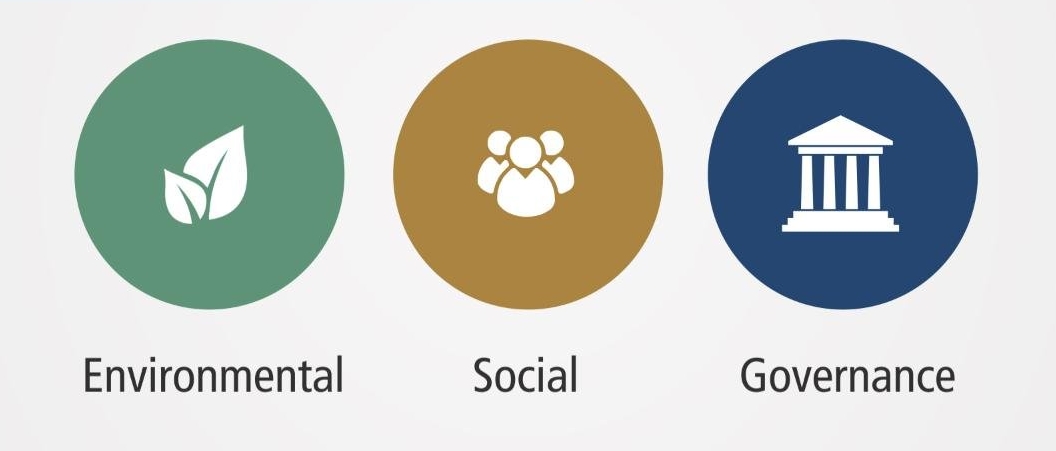Is ESG the way to a better future?
Aside from being an ethical consumer, you can vote with your dollar to foster the sustainability movement in a greater way – the way you make money. You can choose to invest in sustainable causes. The most common way to invest in sustainability is ESG Investing.
We should think of changing our investment systems for the better because currently the world economies, particularly the stock markets are skewed towards oil and fossil fuel industries. In fact, the stock market is problematic because of its overdependence on the oil sector.

According to Forex Capital Markets, there is an inverse relationship between oil and stock pricing. It is assumed that when oil prices rise, energy prices rise as a whole. Hence, it will affect the production and transportation of products. When oil prices rise, the equities valuations are driven down and when oil prices drop, the equities valuations are driven down. However, the correlation between the two may not be as significant and strong, says the Federal Reserve Bank of Cleveland. This simply implies that analysts cannot really predict the way stocks react to changing oil prices. So fluctuations in the price of oil can lead to an unpredictable and problematic stock market.
Can you invest in sustainability?

Sustainability is meeting our own needs and wants without damaging or compromising the future generation to meet also their own needs and wants, according to McGill University.
We can and should invest in sustainability because, in this, we can show our support towards environmental protection. It also helps us act and fight against climate change, pollution, and wasteful practices. On the business side, the company will also boost its business by providing greener services and ethical management.
Since time immemorial, many people want to invest their money for future purposes. They want to make money with money. And the best way to multiply your money is to invest in sustainability.
Investing in sustainability has so many benefits. While you are investing your money, you are also making the world a better place. All of us can invest in sustainability – you just need to understand and put your money where your principles lie
What is ESG Investing?

ESG is a set of strategies that seek to focus on companies that work in an environmentally friendly, socially-responsible, and ethical model. Using ESG investing for your portfolio is a good choice because it now multiplies your money, it also supports eco-friendly companies that work ethically for all.
ESG stands for Environment, Social, and governance. ESG ratings count in responsible investing. High ESG companies are environmentally friendly and work in a socially-responsible and ethical way. Low ESG companies are those that are problematic in their environmental policies, labor-management, and overall ethics.
ESG investing is a way of investing your money to go to a company that helps solve environmental issues, upholds social responsibility, and treats workers fairly. ESG aims to help people by investing to make the world a better place.
History of ESG Investing
ESG is rooted in the history of SRI (Sustainable and Responsible investing). ESG investing strategies is also used in all SRI strategies. With that being said, it must be noted that although these two may be intertwined with each other, they are different on various factors. According to Georg Kell from Forbes, SRI is based on ethical and moral criteria and uses mostly negative screens whereas ESG assumes that ESG factors have financial relevance.
ESG and SRI investing originated from religious principles. Judaism, Islam, and Christianity are the main driving religions that established and started ESG and SRI, due to the moral standpoint that they ought to abide according to their religious law. In general, these religions compel their congregation to use investments and businesses as pure and holy, as a driver for social good. So ESG investing excludes usury, gambling, and smuggling.
The starting point of ESG began in 2004 by Kofi Annan, which is a former UN Secretary-General. Kofi invited over 50 CEOs of major financial institutions. This came from a joint initiative under the auspices of the UN Global Compact and with the support of the International Finance Corporation (IFC) and the Swiss Government. The general aim of this was to integrate ESG into capital markets.
Then, Ivo Knoepfel wrote a report entitled “Who Cares Wins” which stemmed from the initiative started by Kofi in 2004. This report stated the factors involving the environment, society, and governance results in a better outcome for businesses as it is more sustainable and at the same time, it benefits the company and the world in general.
In 2006, the Principles for Responsible Investment (PRI) at the New York Stock Exchange was launched, whose basis was the “Freshfield Report” by UNEP/Fi and “Who Cares Wins” by Ivo Knoepfel. And from that point onwards, ESG continued to grow and expand.
ESG has developed into a market-transforming set of standards that slowly create sustainable common good.
How does an ESG criteria work?
ESG investing follows stringent criteria.
E = Environmental Commitment
This criterion focuses on how companies tackle environmental issues such as climate change, carbon emissions, water scarcity, deforestation, and pollution. This checks how efficient they are in managing their resources and ensuring that no harm is onto the environment and biodiversity. They should think about reducing their carbon footprint and reliance on nature-destroying processes.
S = Social Responsibility
This criterion focus on human rights, and employee compensation, and community engagement. It checks how companies treat their clients, workers, and other stakeholders. They should have fair labor policies, efficient customer care, and adherence to universal human rights.
G = Governance
This last criterion refers to how well the leadership of the company is. It also pertains to diversity, especially if it caters to all races, genders, and personalities. This also refers to the ethics of the management such as executive compensation, lobbying, political contributions, and whistleblower schemes.
All these criteria determine the sustainability of investing in those companies. With this, investors can know if they invest their money in the right hand. This is a big opportunity for our world to be a better place since it help both human and the environment by investing in a company with ESG.
ESG vs other investment strategies
ADEC Innovations compares ESG with two other investing strategies, namely the SRI (Socially Responsible Investing) and Impact Investing.
With ESG Investing, investors can choose specific companies to invest in, vetting them by environmental commitments and governance standards. In fact, ESG investments undergo two strategies to be successful. The first one is on choosing compelling investments that fall within the ESG criteria, and the second one is on selecting those that are anticipated to “generate a scalable, profitable impact”.
SRI
It focuses on eliminating the different investments that are related to guns, tobacco, gambling, adult entertainment, and other vices. Basically, it prevents you from supporting industries those perpetual morally bad businesses.
Impact Investing
Impact Investing is more advanced compared to the aforementioned sustainable investing strategies. It focuses on finding a way of implementing both financial profitability and creating a positive environmental and social impact.
Conscious Capitalism
Conscious Capitalism is founded by Raj Sisodia and John Mackey. This revolves around the principle that ethics must be highlighted in the company’s pursuit of profits.
Pros and Cons of ESG Investing
ESG Investing has many advantages, but also some distinct disadvantages.
Pros
- Addresses and promotes solutions for global issues that are constantly affecting society.
- Allows investors to review the behavior and policies of a company based on independent ratings, in terms of environmental performance, social impact, and governance issues.
- Seen as the future of investing
- Sustainable even in turbulent financial times
More and more people are drawn to companies that have a reputation for being socially or environmentally responsible. The 2006 survey, “Cone Millennial Cause Study”, shows that 50% of the millennial respondents would prefer to trust or purchase products and services offered by companies who practice investment strategies that are beneficial for society and the environment.
Cons:
- It limits the scope of companies that is eligible for investments.
- They are also danger in lack of transparency in companies’ whole business practices and values.
- Some ESG funds still invest in oil and fossil fuel companies.
How to find ESG investments?
The first thing to do is to research. Keep in mind that your goals must be aligned to such investments, especially when opting to search for the top ESG-rated stocks each year.
Invest in ESG funds or index funds
Having a fund manager or index make the choices for you saves you more time and effort. Pro tip: You can find highly rated ESG-centric ETFs and mutual funds from a variety of brokerages and fund families using screening tools like Morningstar’s and “ESG” as a keyword.
Use Robo-advisors
Go to ESG-Savvy Robo-advisors (e.g. Betterment, Ellevest, Wealthsimple, Sustainfolio, Earthfolio and OpenInvest). Though there are additional fees, investors will benefit from expert-level investment research and automated investment management.
Hire An ESG Financial Advisor
He or she can help you find a better quality of choices that robo-advisors cannot identify. An advisor can specifically tailor an ESG strategy to your worldview, as well as serving as your trusted ally to make investments with a positive impact on the world. The fee may be higher compared to the rest, but advisors allow you to get a high-level view of your entire financial life with a full-service relationship.
Should you do ESG Investing?
You should do ESG Investing because it can help mitigate risks, says John Rotonti of The Motley Fool. This allows you to outperform the broader market because it identifies certain factors that can affect your investments. For example, the challenges in the environment, especially with climate change, can affect resources and damage economies. Hence, employing ESG can aid in preparing and even mitigating risks that can lead to the downfall of companies and investments.
Strong ESG traits can be viewed as indicators of companies with exemplary management teams. Moreover, it may also infer that companies excel at engaging their employees so this leads to higher earnings. It will eventually lead to high customer engagement and higher profitability. In the end, practicing ESG investing can significantly create an impact that is highly beneficial for the betterment of all.
Other ways to invest in sustainability
Don’t want to place a stake in the stock market yet? You can still invest in sustainability with other means.
One such way to invest in sustainability is to shop locally. Go into your local community and support small businesses. Buy fresh fruits and vegetables at the farmers’ market. Buying from your own community can help in reducing carbon emissions by eliminating the need for shipping out products outside your vicinity. Moreover, the impact goes beyond this effect, because it generates income to those vendors, which in turn supply the demands of other people from your community.
Another way is to support NGOs that foster sustainable development. This is because they partner with services that aim to address the needs of society – especially those in marginalized areas, and create projects and programs that help resolve community issues. Other NGOs are more on actively advocating solutions for healing and protecting the environment.
Whatever you choose to do, choose to invest in sustainability. Choose to invest in the future of the world, and of future generations.




